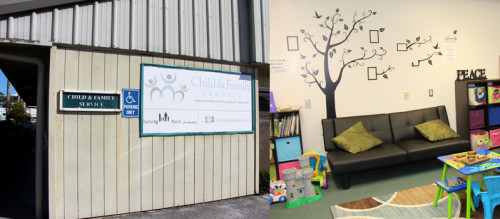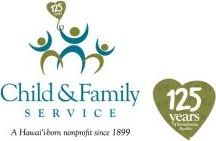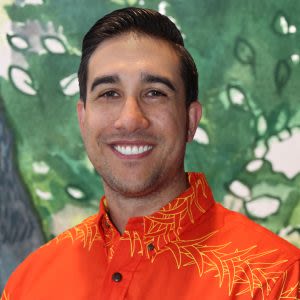

Child and Family Service East Hawaii Island
Treatment Focus
At this center, you receive personalized care for mental health conditions. They provide therapy and tailor treatment to your unique needs, diagnoses, and preferences.
Primary Level of Care
Outpatient treatment offers flexible therapeutic and medical care without the need to stay overnight in a hospital or inpatient facility. Some centers off intensive outpatient program (IOP), which falls between inpatient care and traditional outpatient service.
This provider hasn't verified their profile's information. Are you the owner of this center? Claim your listing to better manage your presence on Recovery.com.
Treatment Focus
At this center, you receive personalized care for mental health conditions. They provide therapy and tailor treatment to your unique needs, diagnoses, and preferences.
Primary Level of Care
Outpatient treatment offers flexible therapeutic and medical care without the need to stay overnight in a hospital or inpatient facility. Some centers off intensive outpatient program (IOP), which falls between inpatient care and traditional outpatient service.
Provider's Policy
Please contact us or visit our new planned giving website to learn more about how you can make a bequest of your life insurance policy, retirement plans or other assets.
Child and Family Service East Hawaii Island
Child and Family Service East Hawaii Island
About Child and Family Service East Hawaii Island
Child and Family Service East Hawaii Island, located in Tilo, helps children, adolescents, adults and families facing mental health challenges, especially those affected by domestic violence or sexual abuse. They provide outpatient and in-home care focused on trauma recovery in a safe, supportive environment tailored to each client’s needs.
Promote Healing and Growth
At Child & Family Service East Hawaii Island, individual, group, and family counseling are combined with recreational activities like play therapy and outings to promote healing and growth. Life skills training helps clients develop coping strategies, improve relationships, and build confidence for lasting wellbeing.
Support Recovery and Wellness
Their Ka Lā Hiki Ola Program uses Hawaiian values to help survivors of domestic violence heal and strengthen family bonds. It supports Native Hawaiian and Pacific Islander families with culturally rooted care and promotes domestic violence prevention. They also offer Intensive in-home services for those needing more support than outpatient care.

Highlights from the Center
Highlights
These highlights are provided by and paid for by the center.
Trauma Treatment
Center Overview
Treatment Focus
At this center, you receive personalized care for mental health conditions. They provide therapy and tailor treatment to your unique needs, diagnoses, and preferences.

Insurance Accepted
Pricing and Program Length
Estimated Center Costs
Center pricing can vary based on program and length of stay. Contact the center for more information. Recovery.com strives for price transparency so you can make an informed decision.
Meet your care team

Amanda Pump, MS, CSAC, ICADC
President & CEO

Anne Marie Rizzo
Chief Advancement Officer

Dr. Linda Fox, Ph.D.
Chief Program Officer

Kainalu Severson
Chief Risk & Operating Officer
Levels of Care




Treatment
Specializations
Who We Treat
Adolescents
Teens receive the treatment they need for mental health disorders and addiction, with the added support of educational and vocational services.
Children
Treatment for children incorporates the psychiatric care they need and education, often led by on-site teachers to keep children on track with school.
Men and Women
Men and women attend treatment for addiction in a co-ed setting, going to therapy groups together to share experiences, struggles, and successes.
Approaches
Family Involvement
Providers involve family in the treatment of their loved one through family therapy, visits, or both–because addiction is a family disease.
Personalized Treatment
The specific needs, histories, and conditions of individual patients receive personalized, highly relevant care throughout their recovery journey.
Therapies
1-on-1 Counseling
Patient and therapist meet 1-on-1 to work through difficult emotions and behavioral challenges in a personal, private setting.
Play Therapy
This approach is commonly used with children. It incorporates elements of play and self-expression, like boardgames, finger painting, dolls, and blocks.
Trauma-Specific Therapy
This form of talk therapy addresses any childhood trauma at the root of a patient's current diagnosis.
Family Therapy
Family therapy addresses group dynamics within a family system, with a focus on improving communication and interrupting unhealthy relationship patterns.
Life Skills
Teaching life skills like cooking, cleaning, clear communication, and even basic math provides a strong foundation for continued recovery.
Recreation Therapy
In recreation therapy, recovery can be joyful. Patients practice social skills and work through emotional triggers by engaging in fun activities.
Conditions We Treat
Anger
Although anger itself isn't a disorder, it can get out of hand. If this feeling interferes with your relationships and daily functioning, treatment can help.
Anxiety
Anxiety is a common mental health condition that can include excessive worry, panic attacks, physical tension, and increased blood pressure.
Depression
Symptoms of depression may include fatigue, a sense of numbness, and loss of interest in activities. This condition can range from mild to severe.
Trauma
Some traumatic events are so disturbing that they cause long-term mental health problems. Those ongoing issues can also be referred to as "trauma."
Languages
Aftercare
Experience
Off-Site Activities

We love hearing about your treatment experience
Help individuals and families seeking treatment by sharing your first-hand experience with this treatment provider. Review Guidelines.





